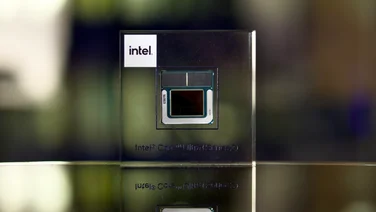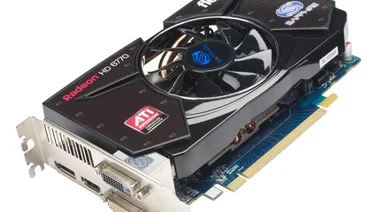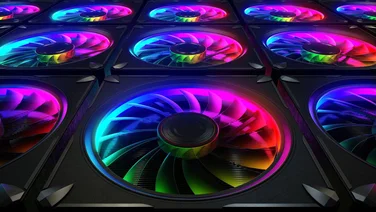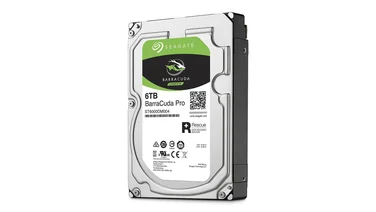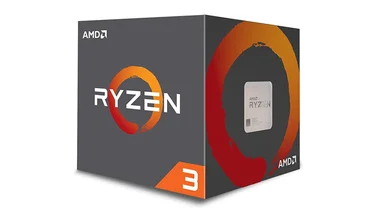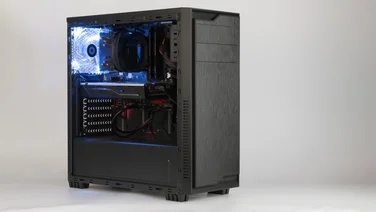To help us provide you with free impartial advice, we may earn a commission if you buy through links on our site. Learn more

The rumours were true: Intel has indeed created a 10-core enthusiast CPU, and it’s part of the new line of top-spec Broadwell-E processors.
As with 2014’s Haswell-E family, Broadwell-E – including this, the Core i7-6950X – represents a rejigging of an existing architecture aimed at those who regularly use demanding media and design software, the kind that benefits most from a wealth of multiple cores. All Broadwell-E chips are fully unlocked, too – perfect for overclocking and gaming, in theory.
Naturally, the Core i7-6950X has been granted a few choice upgrades over its preceding equivalent, the Core i7-5960X. Perhaps the biggest is Turbo Boost Max, AKA Turbo Boost 3.0; besides integrating the familiar benefits of Turbo Boost 2.0, automatically upping clock speeds if they’re not already being pushed to their limits, Turbo Boost Max can identify which individual cores are running the fastest, and assign the most intensive tasks to those cores. It’s a handy tool for ensuring you’re not wasting power on some cores while unnecessarily straining others.

^ We tested out the Intel Core i7-6950X on an Asus X99-DELUXE II motherboard
Top 10
It’s certainly not lacking in cores to choose from, either. A deca-core processor like the Core i7-6950X might sound like overkill for most users – and it is – but besides great potential for futureproofing, anyone who’s ever tried to run multiple compute-intensive applications (especially CAD programs) at once will know that it takes more than RAM to ensure efficient multitasking performance.
The abundance of cores also makes sense in light of their actual clock speeds: just 3.0GHz apiece, with Turbo Boost pushing them up to a maximum of 3.5GHz. That’s slower than an awful lot of mainstream Core i5 and Core i7 chips, and points towards Intel’s focus on multitasking rather than basic single-core performance.
The good news, in that regard, is that not only did the Core i7-6950X thoroughly beat the Core i7-5960X in our 4K benchmarks, but even at base clock speeds it recorded by far the best multitasking and overall scores we’ve ever seen: 290 and 245 respectively. Plus, while the Haswell-E processor only managed a disappointing 72 in the image editing test, this new Broadwell-E chip scored 120. Not as outstanding as its other scores, but much more befitting a processor of its stature. Its video score of 240 is also a 30-point improvement on the Core i7-5960X.

Clocking Out
Since Broadwell-E chips are intended to be paired with at least one dedicated graphics card, they – as with Haswell-E – don’t include integrated graphics. Instead, we tested the Core i7-6950X using the AMD R7 260X of our usual reference PC. It’s definitely a lower-spec card (and aging) card, though, so the advantage it gave the processor was limited.
In fact, it was in the gaming benchmark tests, where graphical capability is most important, that the Core i7-6950X’s relatively modest clock speeds showed their big weakness. In Dirt Showdown, running at 720p and with High settings enabled, our Broadwell-E-equipped system only averaged 55fps – that’s just three frames more than what the AMD A10-7850K achieved with integrated graphics. Perhaps the less said about its showing at 1080p and Ultra presets, the better – here it barely managed 26fps.
It’s certainly jarring to compare the Core i7-6950X’s 2D and 3D benchmark scores, but then there are very few games that take advantage of more than a few cores and threads, Dirt Showdown not being one of them.
That said, this is a chip for experienced overclockers. We got all 10 of the Core i7-6950X’s cores up to 3.9GHz while maintaining perfect stability, and without even having to touch voltages – a further increase to 4.0GHz seemed fine for a while, but then crashed during the multitasking portion of our 4K benchmarks. As with certain past chips, you can also overclock individual cores; this has a nice synergy with Turbo Boost Max, as demanding tasks will be automatically assigned to these sped-up cores while you can save energy and heat on the others.
This boost to 3.9GHz more than doubled the framerate in Dirt Showdown, going from 55fps at 720p to 123fps. We seemed to get diminishing returns in the 2D benchmarks, but still saw notable improvements across the board: 137 for image editing, 274 for video editing, 331 for multitasking and 280 overall.

Burning Cash
Be prepared, however, to invest in cooling if you haven’t already. We weren’t sent a stock cooler but paired the Core i7-6950X with a colossal tower air cooler, the Cooler Master Hyper 612 Ver. 2 – even with its hulking radiator, and the processor at base clock speeds, this could only keep core temperatures down to 36°C when idle and 84°C under load. The Core i7-6950X is a bit of a power hog as well, possessing a 140W TDP.
Finally, there’s the not-so-small matter of the not-so-small price. UK pricing wasn’t available when going to print but Intel will sell this chip in the US for an eye-watering $1,569; that’s about £1,285 at current exchange rates, enough to buy a complete high-spec PC.
This Broadwell-E chip’s exceptional multitasking capabilities could help it find a happy niche among cash-rich designers, but considering its enormous outlay and iffy gaming performance, for the vast majority of users we’d recommend the £285 Intel Skylake Core i7-6700K or 6600K instead.
| Specifications | |
|---|---|
| SOCKET | LGA2011-3 |
| CORES | 10 |
| FREQUENCY (BOOST) | 3.0GHz (3.5GHz) |
| INTEGRATED GRAPHICS | None |
| WARRANTY | Three years RTB |
| DETAILS | www.intel.com |
| PART CODE | Core i7-6960X |

